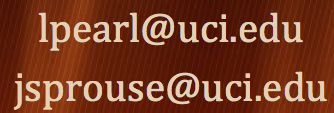About the project
The inspiration
One of the most controversial (set of) claims in linguistic theory is that the data available to children during the language learning process underdetermines the language eventually attained, and that the solution to this induction problem is domain-specific innate knowledge (the Universal Grammar (UG) hypothesis). Recent debates in the language learning literature have questioned both the existence of induction problems and the possibility of ever falsifying the UG hypothesis. In addition, though there have been several recent high-profile investigations of the necessary types of learning biases, the UG hypothesis is still the dominant assumption for a large segment of linguists due to the lack of studies addressing central phenomena in generative linguistics. We proposed a specific methodology for quantifying the induction problems faced by children during language learning, and empirically testing the UG hypothesis. The phenomena we chose to primarily focus on were constraints on long-distance dependencies, sometimes called syntactic islands.
The results
There were several products of this project, including the first version of the CHILDES Treebank, several publications relating to linguistic induction problems, syntactic islands, or both, and two workshops dedicated to the relationship between the linguistic input and syntactic acquisition.
